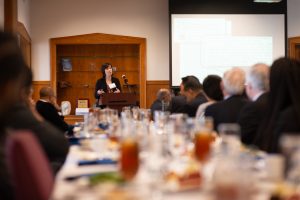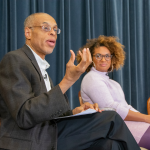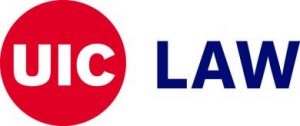MOSAIC IP LAW AND POLICY ROUNDTABLE CONFERENCE
Through these conferences, IP scholars can work together with political activists, practicing attorneys, community organizers, and policy makers to produce activist scholarship, to collaborate on various IP Empowerment policy initiatives and projects, and to otherwise help to shape and effectuate a progressive and contemporary IP socio-legal agenda.
October 28-29, 2022
Online Conference
Eighth Annual IP Mosaic Conference
Co-hosted by Marquette University Law School

Theme: Access for All? The Role of IP in Equity, Power, and Democracy in Challenging Times
Friday, October 28
Program: 9:30 am – 5:00 pm CDT/ 7:30 am – 3:00 pm PDT/ 3:30 pm – 11:00 pm BST/ 4:30 pm – 12:00 am GMT
Virtual Happy Hour: 5:00 pm – 6:00 pm CDT/ 3:00 – 4:00 pm PDT/ 12:00 am – 1 am BST/ 1:00 am – 2:00 am GMT
Saturday, October 29
Program: 9:30 am – 5:00 pm CDT/ 7:30 am – 3:00 pm PDT/ 3:30 pm – 11:00 pm BST/ 4:30 pm – 12:00 am GMT
IP Mosaic Conference Schedule
9:30-9:45 am CDT
Welcome & Remarks
Dean Joseph Kearney, Dean and Professor of Law, Marquette University Law School
Lateef Mtima, Professor of Law, Howard University School of Law & Founder and Director, Institute for Intellectual Property and Social Justice (IIPSJ)
9:45-11:00 am CDT
Plenary Session: International IP and Social Justice
Moderator: Lateef Mtima, Professor of Law, Howard University School of Law & Founder and Director, IIPSJ
Panelists:
Madhavi Sunder – IP for Next Pandemic
Metka Potočnik – Multitude of Voices in International IP: World Intellectual Property Organization and Accredited Observers
11:00 – 11:05 am CDT Break
11:05-12:20 pm CDT
Panel 1: Toward Reparative IP Policy
Moderator: Kali Murray, Professor of Law, Marquette University Law School
Presenters:
Cathay Smith — Cancelling Dr. Seuss
Timothy McFarlin – A Copyright Restored: Mark Twain, Mary Ann Cord, and How to Right a Longstanding Wrong
Trevor Reed – Restorative Justice for Indigenous Culture
12:20 – 12:50 pm CDT Lunch Break
12:50-2:35 pm CDT
Panel 2: 2022 Ben Liu Scholars
Moderator: Jasmine Abdel-Khalik, University of Missouri-Kansas City School of Law
Presenters:
Adithya Variath – TWAIL and Protecting Traditional Knowledge: Perspectives on Decoloniality and Social Justice in IP Law
Jordana Goodman and Khamal Patterson – Access to Justice for Black Inventors
–Break —
Tiffany Nichols – Patenting Automated Race and Ethnicity Classifications: Discerning Epistemic Understandings of Race and Ethnicity Through Patent Literature
Arunima Shastri and Batra – Patentability of Inventions Done In Metaverse and the Regulatory Measures That Need To Be Undertaken
2:35 – 2:45pm CDT Break
2:45-4:00 pm CDT
Plenary Session 2: Andy Warhol Foundation for the Visual Arts v. Goldsmith Amici
Moderator: Tuneen Chisolm, Associate Professor of Law, Howard University School of Law
Panelists:
Sandra Aistars, Clinical Professor of Law, and Founding Director of the Arts & Entertainment Advocacy Clinic at GMU Law
Loletta Darden, Visiting Associate Clinical Professor of Law & Director, Intellectual Property and Technology Law Clinic, George Washington University Law School
Philippa Loengard, Kernochan Center for Law, Media and the Arts, Columbia Law school
Kevin Madigan, Copyright Alliance
Lateef Mtima, Professor of Law, Howard University School of Law & Founder and Director, IIPSJ
Betsy Rosenblatt, Professor of Law, The University of Tulsa, College of Law
Jeff Sedlik, Photographer, Professor, Art Center College of Design
4:00 – 4:10 pm CDT Break
4:10-5:00 pm CDT
Panel 3: Traditions or Traps? Patent Inventor Access under Review
Moderator: Loletta Darden, Visiting Associate Clinical Professor of Law & Director, Intellectual Property and Technology Law Clinic, George Washington University Law School
Presenters:
Sharon Bar-Ziv, Orit Fischman-Afori, Miriam Marcowitz-Bitton – Where The Gender Gap Meets Academic Patenting: An Empirical Study
Colleen Chien – Redefining Progress To Include Diversity In Innovation And Inventorship
5:00-6:00 pm CDT HAPPY (& SOCIAL) HOUR ONLINE
9:30 – 9:40 am CDT
Opening Remarks
• Kali Murray, Professor of Law, Marquette University Law School
• Lateef Mtima, Professor of Law, Howard University School of Law & Founder and Director, IIPSJ
9:40-11:55 am CDT
Inaugural Student IP Scholars Roundtable
Moderator: Tuneen Chisolm, Associate Professor of Law, Howard University School of Law
Panelists
Zuri Ward – North Carolina Central University School of Law – Umbrella: Combating Systemic Racism by Providing Black Creators Accessible Tools to Safeguard their Intellectual Property
Commenter – tbd
Drew Emerson – Howard University School of Law – Legal Solutions To Combat The Misapplication of DMCA Claims To Video Game Streaming
Commenter – tbd
Taniya Moore – Howard University School of Law – Protecting Nostalgia: Should Copyright Protection Include A Parallel To Trademark Law’s Incontestability Status?
Commenter – tbd
11:55am – 12:00 pm CDT Break
12:00-1:45 pm CDT
Panel 3: Distribution of Power and IP Stakeholders
Moderators: Lateef Mtima, Professor of Law, Howard University School of Law & Founder and Director, IIPSJ
Presenters:
Metka Potočnik — Collectivity without Solidarity, Inclusion or Democracy: a Feminist Critique of Collective Rights Management of Copyright
Patricia Aufderheide & Brandon Butler — Copyright and Other Obstacles to Text- and Datamining Research: The Need for a Right to Research
–Break–
Niharika Salar & Bernd Justin Jütte — Geographical Indications: Community Rights in a global IP system
Faith Majekolagbe, Assistant Professor, University of Alberta Faculty of Law — Copyright and Equitable Access to Education and Learning for All in Pandemic and Post-Pandemic Times: Towards a Global Fair Use Right?
1:45 – 1:55 pm CDT Break
1:55-3:10 pm CDT
Plenary Session: Wikimedia and Access to Knowledge
Moderator: Shreyanka Mirchandani Changaroth, Wikimedia Race and Knowledge Equity Fellow
Panelists:
Margaret Chon, Donald and Lynda Horowitz Professor for the Pursuit of Justice, Seattle University School of Law
Faith Majekolagbe, Assistant Professor, University of Alberta Faculty of Law and Fellow, Harvard University Berkman Klein Center
Colleen Chien, Professor of Law, Santa Clara University School of Law
Brett Frischmann, Professor of Law, Villanova University School of Law
J. Jan Osei-Tutu, Associate Dean for Diversity, Culture & Inclusion and Professor of Law, Florida International University Law School
Betsy Rosenblatt, Professor of Law, The University of Tulsa College of Law
3:10-4:55 pm CDT
Panel 5: IP Boundary Dynamics
Moderator: Jasmine Abdel-Khalik, University of Missouri-Kansas City School of Law
Presenters:
Lukas Goncalves — Preserving the Right of Access to Copyrighted works based on Data Regulation
Sharon Sandeen — The Employee’s Right to Learn
–Break –
Dustin Marlin – The Nightmare of Dream Advertising
Ram Mohan and Aditya Gupta — Mutation of the Trademark Doctrine: A case study in Barbie
4:55 pm CDT
Closing Remarks
Lateef Mtima, Professor of Law, Howard University School of Law & Founder and Director, IIPSJ
About the IP Mosaic Conference
 Each IP Mosaic Conference is typically organized around a specific IP social justice legal issue, policy, or socio-economic challenge. Representative conference themes include equitable access to health, medicines, knowledge, and information; socially beneficial application of information technology and related advances to IP development and dissemination; legal protection for traditional and indigenous knowledge and expression; and promoting IP awareness, education, and entrepreneurial and socio-political empowerment in marginalized communities. The conference format is principally comprised of paper or project presentation sessions and plenary panel discussions. In addition, keynote presentations and “incubator project” and work in progress sessions are also mainstays of the conference.
Each IP Mosaic Conference is typically organized around a specific IP social justice legal issue, policy, or socio-economic challenge. Representative conference themes include equitable access to health, medicines, knowledge, and information; socially beneficial application of information technology and related advances to IP development and dissemination; legal protection for traditional and indigenous knowledge and expression; and promoting IP awareness, education, and entrepreneurial and socio-political empowerment in marginalized communities. The conference format is principally comprised of paper or project presentation sessions and plenary panel discussions. In addition, keynote presentations and “incubator project” and work in progress sessions are also mainstays of the conference.
The Pragmatic Intersection of Scholarly Analysis and Law and Policy Development
IP protection is intended to play an important role in engendering human development and actualization toward the greater societal good. The traditional tools and experience of scholarly analysis, reflection, and discourse, however, are not always readily adaptive toward targeted social action, or what is sometimes referred to as “public intellectualism”. Through the IP Mosaic Conference, IP scholars engage with social activists, practicing attorneys, and policy makers to produce “activist scholarship”, to collaborate on various “IP Empowerment” policy initiatives and projects, and to otherwise help to shape and effectuate a progressive and contemporary IP socio-legal agenda.
Conference Planning Committee
Jasmine Abdel-Khalik, University of Missouri-Kansas City School of Law Janewa Osei-Tutu, Florida International University
Tuneen Chisolm, Howard University School of Law Metka Potocnik, University of Wolverhampton, Law School
Nicole Morris, Emory Law Srividhya Ragavan, Texas A&M School of Law
Lateef Mtima, Howard University School of Law Betsy Rosenblatt, The University of Tulsa, College of Law
Kali Murray, Marquette University Law School Kara Swanson, Northeastern University School of Law
Since 2014, IIPSJ has sponsored the IP Mosaic Conference. Through the IP Mosaic, IIPSJ collaborates with a law school host to provide a venue in which to explore the social ordering function of IP protection in the total political economy, particularly the law’s social justice obligations in promoting human rights and actualization, cultural and technological progress, and self-determination and nation-building. 
The IP Mosaic Conference was established to bring together scholars, law and policy makers, and social activists of diverse and multicultural backgrounds and perspectives to explore progressive, social justice-oriented ideas in intellectual property law, policy, and social activism. Beginning in the late twentieth century, digital information technology and other innovations sparked a paradigm shift in scholarly assessment of the social ordering function of IP protection, exposing the need to critically examine the law’s social justice obligations in promoting human rights, self-determination, cultural progress, and nation-building and evolution. IP law and policy makers traditionally value scholarly analyses in their development and interpretation of IP protection. Progressive, social justice-oriented IP scholarship, especially when infused with the experience and insights of policy makers and social activists, can provide the doctrinal basis for shaping a more socially responsible IP legal regime.


